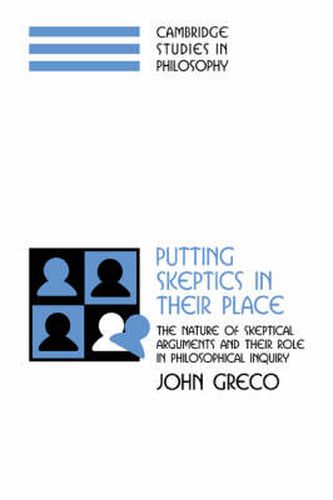Readings Newsletter
Become a Readings Member to make your shopping experience even easier.
Sign in or sign up for free!
You’re not far away from qualifying for FREE standard shipping within Australia
You’ve qualified for FREE standard shipping within Australia
The cart is loading…






This book, first published in 2000, is about the nature of skeptical arguments and their role in philosophical inquiry. John Greco delineates three main theses: that a number of historically prominent skeptical arguments make no obvious mistake, and therefore cannot be easily dismissed; that the analysis of skeptical arguments is philosophically useful and important, and should therefore have a central place in the methodology of philosophy; and that taking skeptical arguments seriously requires us to adopt an externalist, reliabilist epistemology. Greco argues that the importance of skeptical arguments is methodological. It is further argued that taking skeptical arguments seriously requires us to adopt a version of ‘virtue epistemology’, or a theory of knowledge that makes intellectual virtue central in the analysis of knowledge. The above methodology has consequences for moral and religious epistemology; in particular, a theory of moral perception is defended.
$9.00 standard shipping within Australia
FREE standard shipping within Australia for orders over $100.00
Express & International shipping calculated at checkout
This book, first published in 2000, is about the nature of skeptical arguments and their role in philosophical inquiry. John Greco delineates three main theses: that a number of historically prominent skeptical arguments make no obvious mistake, and therefore cannot be easily dismissed; that the analysis of skeptical arguments is philosophically useful and important, and should therefore have a central place in the methodology of philosophy; and that taking skeptical arguments seriously requires us to adopt an externalist, reliabilist epistemology. Greco argues that the importance of skeptical arguments is methodological. It is further argued that taking skeptical arguments seriously requires us to adopt a version of ‘virtue epistemology’, or a theory of knowledge that makes intellectual virtue central in the analysis of knowledge. The above methodology has consequences for moral and religious epistemology; in particular, a theory of moral perception is defended.